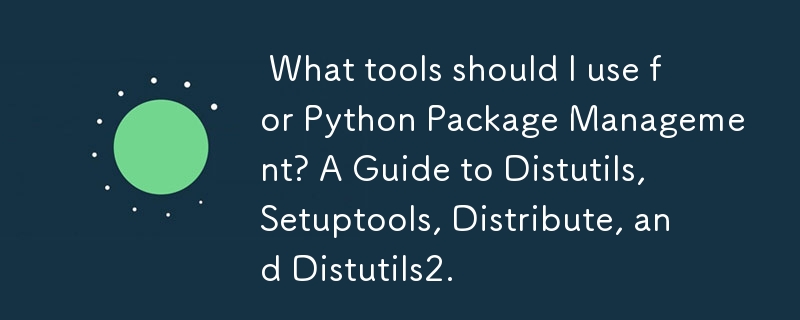

Python package management has evolved over time, introducing various tools that serve different purposes. Understanding the nuances between these tools is crucial for efficient software distribution and installation.
Distutils, incorporated into Python's standard library, provides basic functionalities for creating and distributing Python packages. However, its limitations, such as lack of dependency management and challenges with complex setups, led to the emergence of alternative solutions.
Setuptools was created to address the shortcomings of Distutils. It introduced improved dependency management, support for easy_install, and the capability to import its functionality directly into setup.py scripts. However, setuptools's "monkey-patching" technique, which alters the Distutils namespace, can lead to compatibility issues.
Distutils2 aimed to merge the best aspects of Distutils, Setuptools, and Distribute. However, its development stalled, and it was eventually abandoned.
Distribute emerged as a fork of Setuptools. It shared the same namespace, causing importing Setuptools to actually import the version distributed with Distribute. However, Distribute is now obsolete, as it was merged back into Setuptools version 0.7.
As of 2022, the Python packaging landscape has evolved significantly, with several newer tools gaining prominence. However, for those starting out, Setuptools remains the recommended choice. Its maturity, compatibility with pip and virtualenv, and robust documentation make it a reliable option for Python package management.
While distutils is deprecated and distutils2 is abandoned, scikit-build offers enhanced build capabilities for compiled Python extensions. Distlib and packaging serve as essential libraries used by higher-level tools.
The above is the detailed content of What tools should I use for Python Package Management? A Guide to Distutils, Setuptools, Distribute, and Distutils2.. For more information, please follow other related articles on the PHP Chinese website!




